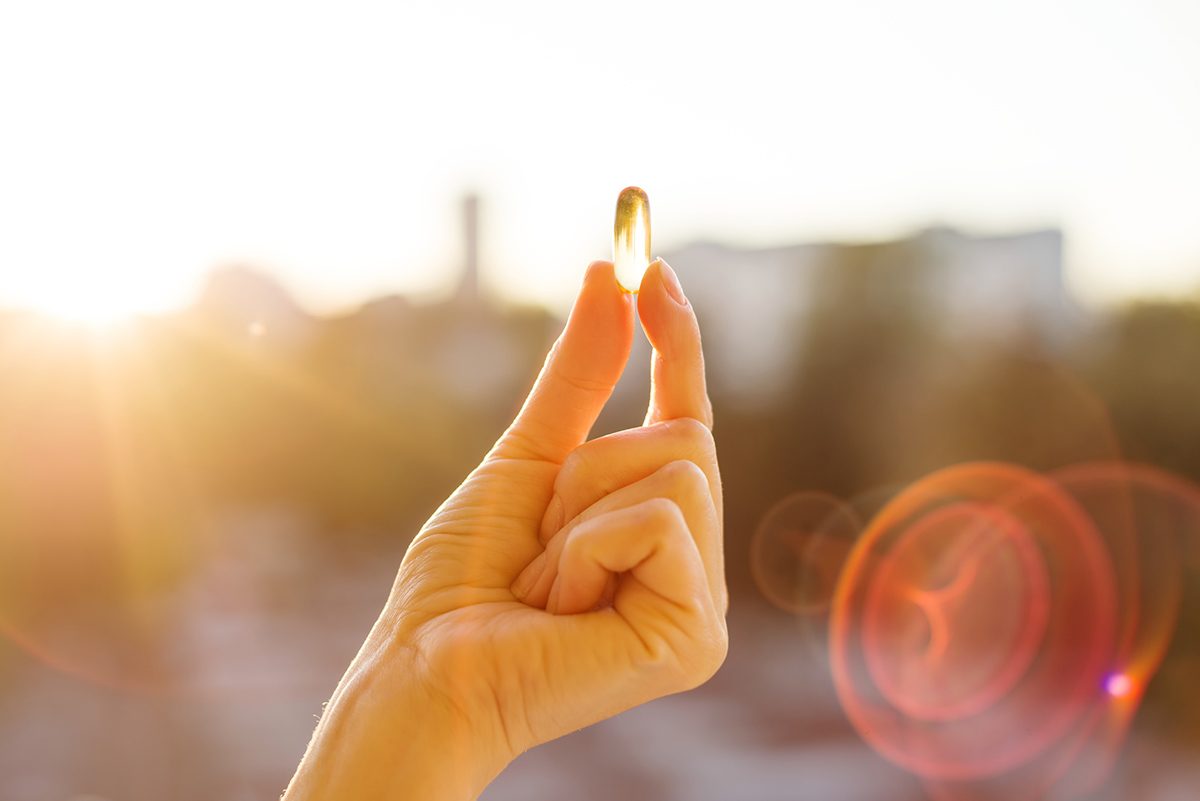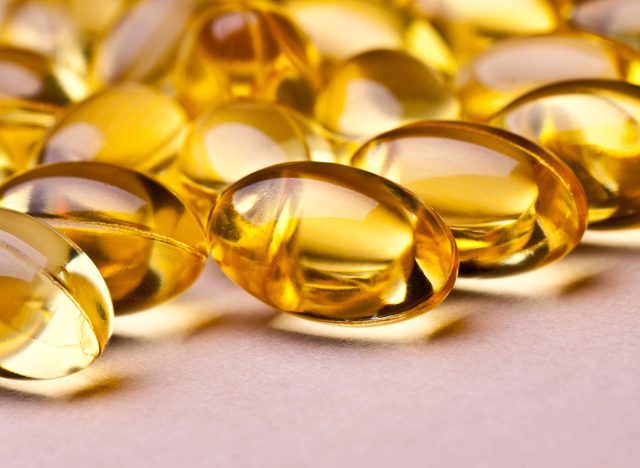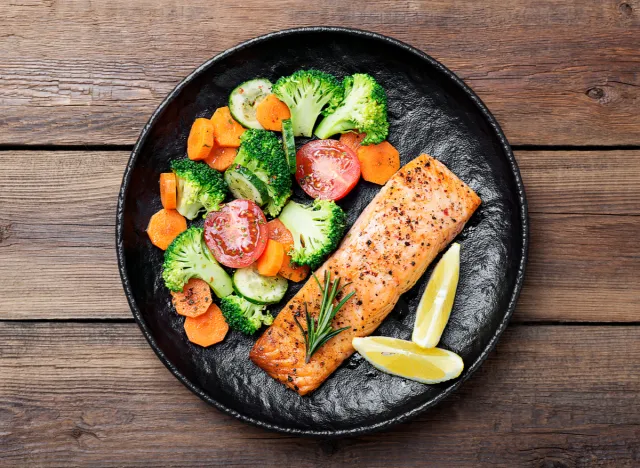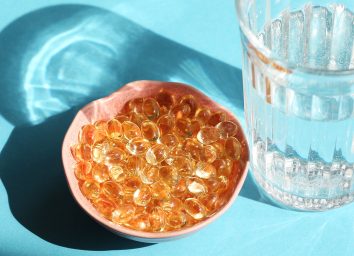Taking Vitamin D Daily Can Help Prevent This Disease, New Study Says

Vitamin D is an essential nutrient that is responsible for numerous functions, such as strengthening bones, improving muscle strength, boosting the immune system, and sending messages between the brain and the body.
Now, new research from Brigham and Women's Hospital has found that people who took a vitamin D supplement (or a combination of vitamin D and omega-3 fish oil) were less likely to be diagnosed with an autoimmune disease. Keep reading to learn more about this new research, and then check out The #1 Best Juice to Drink Every Day, Says Science.
Since this vitamin and essential fatty acid have been shown to reduce inflammation while boosting immunity, the medical team gathered a diverse group of 25,871 adults with an average age of 67. The volunteers were directed to take a daily vitamin D supplement that contained 2,000 International Units (IU), as well as an omega-3 fatty acid supplement with 1,000 milligrams. Some of the participants were given either one or two placebos.
During the five-year trial, the volunteers were instructed to report if they had been diagnosed with an autoimmune disease, a condition where the immune system malfunctions and mistakenly attacks healthy cells, tissues, and organs, as defined by the National Institutes of Health (NIH). These diseases included rheumatoid arthritis, polymyalgia rheumatica (pain and stiffness in the muscles around the shoulders, neck, and hips), thyroid disease and psoriasis, among others.
Their findings, which were published in the journal BMJ, found that the vitamin D group showed a reduced risk of autoimmune disease by 22%. Interestingly, the vitamin D group also reported 39% fewer autoimmune cases during the last three years of the trial.

"It is exciting to have these new and positive results for nontoxic vitamins and supplements preventing potentially highly morbid diseases," said Karen Costenbader, MD, director of the lupus program at Brigham and Women's Hospital and senior study author, in a press release. "This is the first direct evidence we have that daily supplementation may reduce [autoimmune disease] incidence, and what looks like more pronounced effect after two years of supplementation for vitamin D."
The NIH states that scientists have identified more than 80 autoimmune diseases which affect approximately more than 24 million people in the U.S. Furthermore, the agency states that an additional eight million people have auto-antibodies, blood molecules that indicate a person's chance of developing autoimmune disease.
According to Amy Gorin, MS, RDN, limited exposure to the sun's rays is a common factor for vitamin D deficiency.
"The best way to get vitamin D is from direct sunlight, but this is made difficult by winter hours," she tells Eat This, Not That!. "Also, people who have darker skin are at an increased risk of vitamin D deficiency because they have more melanin— a pigment that decreases the skin's ability to procure vitamin D from sunlight—in their skin."
Minimal food options are another issue behind low vitamin D levels. "The truth is not many foods are great sources of vitamin D, making it a reason why vitamin D is a nutrient of public health concern," Gorin says.

However, along with taking a daily supplement, Gorin points out three foods that are packed with the sunshine vitamin, starting with fatty fish. "Salmon is an excellent source of vitamin D offering 570 IU vitamin D per 3-ounce cooked serving," she says.
Plus, there's good news for mushroom lovers: "A half-cup of maitake mushrooms provides 393 IU while the same amount of UV-grown white mushrooms offers 366 IU," Gorin says.
A third vitamin D-rich food is actually a beverage. Cow's milk, as well as soy milk, have been fortified with vitamin D and offer 120 IU per one-cup serving, she says.
For more on Vitamin D, check out The Best Foods That Are Rich In Vitamin D.









